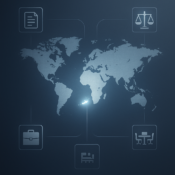
Preparing for Economic Substance Audits in 2026 in Bvi
To prepare for Economic Substance Audits in the British Virgin Islands (BVI) in 2026, companies need to ensure rigorous compliance with the BVI’s Economic Substance regime, which mandates that certain business activities demonstrate genuine local presence, management, and operations within the territory.[1][2][3]
Key Audit Preparation Steps
- Identify whether the company conducts one of the nine “relevant activities” (e.g., banking, insurance, fund management, finance/leasing, headquarters, shipping, pure holding, IP business, or distribution/service center).[2][4]
- Ensure direction and management of relevant activities occurs within BVI. Board meetings and decision-making relating to the activity should take place in BVI, with detailed records kept locally.[1][2]
- Verify adequate physical presence in BVI (suitable office space, qualified staff, and necessary equipment).[5][1]
- Fulfill “Core Income-Generating Activities” requirements by performing key business functions locally. For example, fund management must involve investment decisions made in BVI.[2]
- Maintain sufficient expenditure and operational spending in BVI relative to your activity’s size and scope. Auditors will check for proportionate expenses and local payroll.[1]
- Collect all supporting documentation: records of relevant board meetings, employment contracts, lease agreements, invoices, and audit trails showing local management control.[2]
Filing and Reporting Deadlines
- Annual economic substance reports must be filed every year within six months from the financial period’s end, via a registered agent, regardless of business activity.[3][5]
- The report requires details on activities, physical presence, number of employees, expenditures, and management structure within BVI.[3][5]
- Accurate, timely filing is crucial, as late or incomplete submissions trigger penalties.[5]
Penalties and Risks
- First offenses may attract financial penalties from $5,000–$20,000, while repeated non-compliance can bring fines up to $400,000 or business strike-off, alongside reputational risk and notifications to foreign tax authorities.[5][1]
- Even entities in liquidation or not in good standing must comply and file annual reports.[5]
Checklist for Economic Substance Audit Readiness
- Review all relevant business activities performed under the Act
- Hold board meetings in BVI and retain minutes locally
- Hire adequate qualified staff in BVI
- Maintain local premises and equipment
- Execute core business functions from BVI
- Gather all local expense and payroll records
- File accurate economic substance reports via the registered agent
- Address any audit findings promptly and seek expert advice if required
Conclusion
2026 is shaping up to be a turning point in how economic substance compliance is monitored and enforced. Authorities are moving beyond initial compliance reviews and into a more audit-focused phase. Entities must therefore be audit-ready at all times, with documentation that proves substance in real, operational terms. A proactive and thorough approach to compliance today will protect your structure from costly challenges tomorrow.
📅 Schedule a consultation with Glenn Harrigan to discuss your BVI compliance or audit readiness needs — Click here.
Disclaimer: This post is for informational purposes only and does not constitute legal, tax, or financial advice. Please consult a qualified professional before making compliance decisions.



